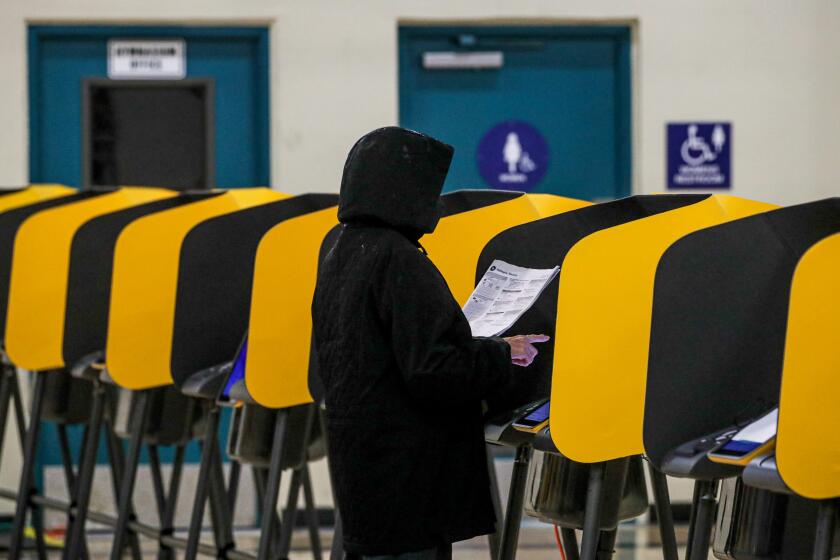Peter Welch moves from House to Senate to succeed Patrick Leahy in Vermont

- Share via
Democratic U.S. Rep. Peter Welch easily defeated a little-known Republican challenger to win the Senate seat being vacated by Patrick Leahy, the longest-serving member of the upper chamber.
Welch, who was elected to the House in 2006 and won reelection with lopsided votes every two years since, defeated Republican Gerald Malloy, a retired U.S. Army officer endorsed by former President Trump.
In a year in which the parties are grappling for control of the Senate, Welch’s election keeps the seat from the deep blue state safely in the Democratic column.
In a statement after the Associated Press called the race for him, Welch thanked Vermonters for their support and said it was a privilege to have served in the House for nearly 16 years.
“While the votes are still being counted across the country and we’re unsure what the Senate will look like in January, we know that — whoever is in charge — the ‘Vermont way’ is needed to find solutions to our shared problems,” Welch’s statement said. “It’s how Senator Patrick Leahy served us so well for 48 years, and it’s how I am committed to serve every day in the Senate.”’
There was no immediate word from the Malloy campaign.
Voters brave the rain to cast ballots in a midterm election that will determine which party controls Congress, abortion access and L.A.’s next mayor.
Welch, 75, drew some criticism before the vote for giving up his House seniority to start as a freshman Senator. But he said his experience was needed in the Senate at a time when he feels the foundation of American democracy is under threat.
Welch pitched himself as someone able to work across the aisle and find common ground with Republican colleagues in a hyperpartisan era.
Leahy, who was first elected to the Senate in 1974, was the last of the so-called “Watergate babies” elected to Congress after the resignation that year of former President Richard Nixon.
In the House, Welch worked for energy efficiency, cutting the prices of prescription drugs, investing in infrastructure, and expanding broadband into rural areas. He served on the Permanent Select Committee on Intelligence, the Committee on Energy and Commerce, and the Committee on Oversight and Reform. He was a chief deputy whip of the House Democratic Caucus, and a member of the Democratic Steering and Policy Committee.
In his bid for the Senate, Welch spent nearly $2.5 million this election cycle, and as of Sept. 30 still had nearly $2.7 million in the bank.
Malloy, a political newcomer who moved to Vermont in 2020, defeated a more mainstream Republican in Vermont’s August primary. He spent about $165,000 during the primary and general election, and had about $61,000 in the bank.
America has been through hard times before. But that’s little solace for voters worried about inflation, crime and abortion rights in this midterm election.
Malloy said he was a pro-life conservative who believes that regulating abortion should be left to the states.
Welch was born in Massachusetts and moved to Vermont in 1974, where he first worked as a public defender. He was a longtime member of the Vermont Senate, and was its first Democratic Senate president pro tempore. He won the U.S. House seat in 2006 when Bernie Sanders gave it up to move from the House to the Senate.
More to Read
Get the L.A. Times Politics newsletter
Deeply reported insights into legislation, politics and policy from Sacramento, Washington and beyond. In your inbox three times per week.
You may occasionally receive promotional content from the Los Angeles Times.












